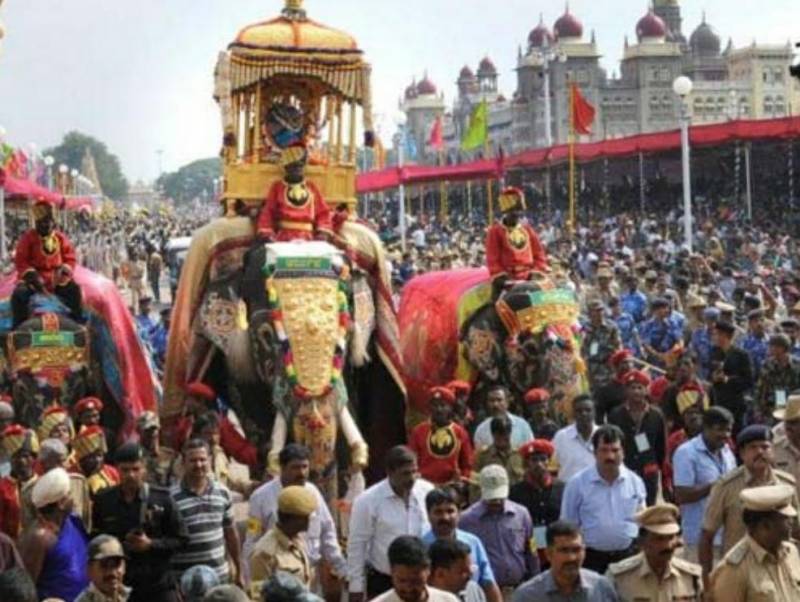Elephants undergo stress during various cultural practices, claims study
By Anurag MallickPublished on : 17 Aug 2019 10:11 PM IST

Hyderabad: A study lead by Dr G Umapathy, Principal Scientist, Laboratory for the Conservation of Endangered Species, CSIR- CCMB examined the psychological stress response of captive Asian elephants. The study says that the captive elephants, both male and female, undergo stress when they are a part of various cultural practices which take place all over the country. Traditions such as public processions at the Mysore Dussehra festival had significantly elevated more stress hormones when compared to other festivals.
The other members of the research group involved in the study that was published in a recent issue of journal “Animals” includes Vinod Kumar, Muthulingam Pradheeps, Adiseshu Kokkiligadda, Rajashekhar Niyogi from LaCONES, CSIR-CCMB, who studied the health of elephants under different working conditions.
They checked for glucocorticoid metabolities (stress hormones) levels in 870 dung samples of 37 captive elephants (24 males and 13 females) from 4 elephant facilities - Mysore Zoo, Mysore Dusshera Camp, Mudumalai elephant camp and Bandhavgarh elephant camp.
The study further said that the adult male elephants could be used for tourism and patrolling purposes, which is mostly for the time span of 3-4 hours a day and should be given a good amount of rest on the alternate days. While on the other hand, females elephants with reproductive age (20 – 55 years) should not be used for stressful activities, which would otherwise affect their reproductive cycles.
Elephants are an integral part of human culture and mythology in Asia. More than 20% of Asian elephants live in captivity and are an indispensable workforce for forest departments, tourism, and religious purposes. This includes increased use of non-traditional or unskilled and inexperienced mahouts (a person who works with, rides and tends an elephant).
The study suggests minimising the participation of elephants in religious activities, processions and forest department activities.
Next Story